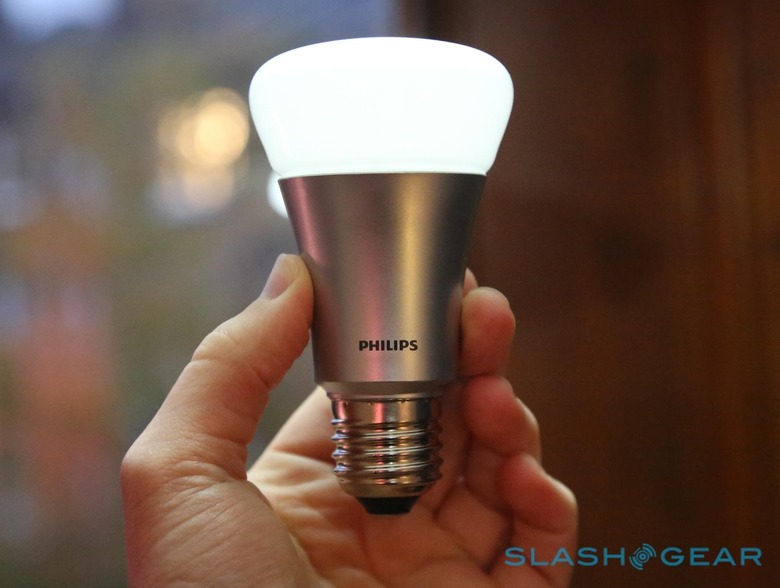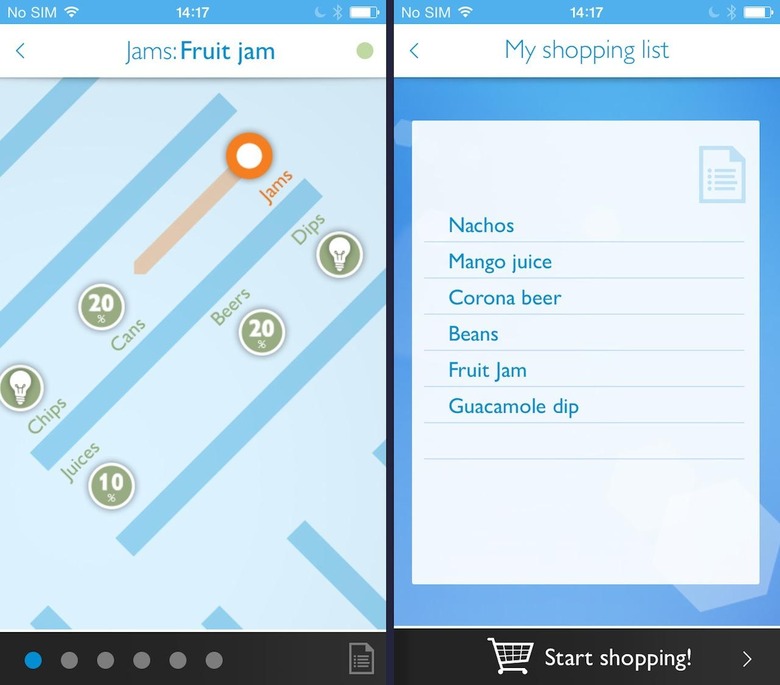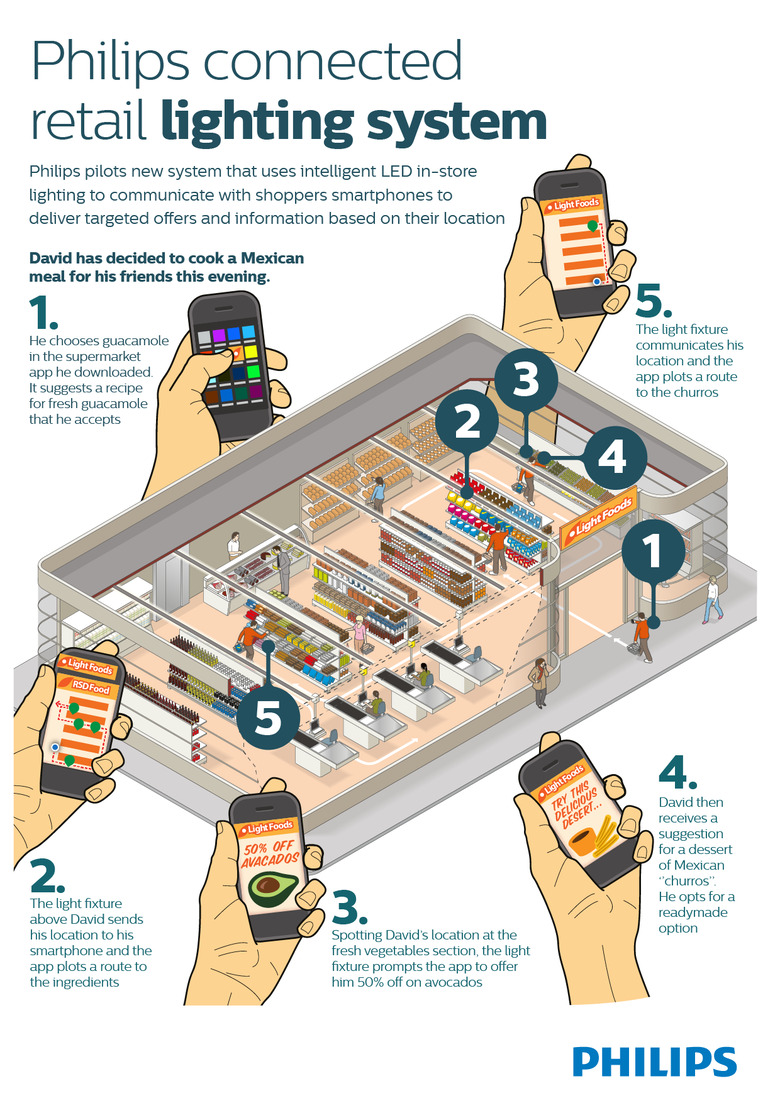Philips LED Lights Flicker Out A Challenge To iBeacon And Gimbal
Philips has its own plans for location-based services in stores and entertainment venues, eschewing low-power Bluetooth by instead using LED lighting that can communicate with a smartphone app and guide customers around. Dubbed Intelligent Lighting, the connected retail lighting system not only illuminates the store, as you'd expect, but acts as a positioning grid which the smartphone can use to figure out where it is currently.
From that point on, the possibilities are considerable. Philips has cooked up a demo app which compares what's on a shopper's ingredient list with the layout of a grocery store, and then guides them around to find what they need; along the way, it can also throw up suggestions of promotions, similar products, or even whole new recipes.
However, indoor directions needn't be the limit of the system. Much as we saw with Qualcomm's Gimbal beacons – used in Apple Stores with the iBeacon system – recently, Philips' version could be used to enable personalized check-outs, deliver venue-specific content during concerts, or anything else which benefits from knowing exactly where the user is.
Where iBeacon relies on short-range Bluetooth connections between phone and store, Philips has opted for what's called visual light communications (VLC). Effectively turning the LEDs on and off at such a high rate that they can be used for data transfer, but also so fast that the human eye doesn't see that flickering, it allows for information to pass in one direction, from light to phone.

That's usually picked up by the front-facing camera on the device. Since the smartphone will have its own data connection, any information needed by the app can be retrieved in the usual way, rather than through the lights.
It's not the first time we've seen lighting used as a data transfer system, though actual real-world implementations have been in relatively short supply. Research from the University of Edinburgh back in 2011 suggested it had advantages in internal positioning, while at roughly the same time the Fraunhofer Institute demonstrated streaming a full movie using lights.

The advantage, Philips points out, is that stores need lights and so already have light fixtures into which the smart bulbs could fit. That bypasses outfitting a location with Bluetooth beacons. Meanwhile, there are effectively no limits to the number of client devices that could receive data from each bulb, as long as there's line-of-sight.
On the downside, the phone would have to be able to "see" the light in order for the VLC to work, but since apps relying on location-based services like iBeacon are generally expected to be active in order for them to offer these position-based deals and notifications, that might not be such a limitation.
Philips says the VLC system is being piloted with an unspecified number of retailers, though there's no word on when a full roll-out might take place.

